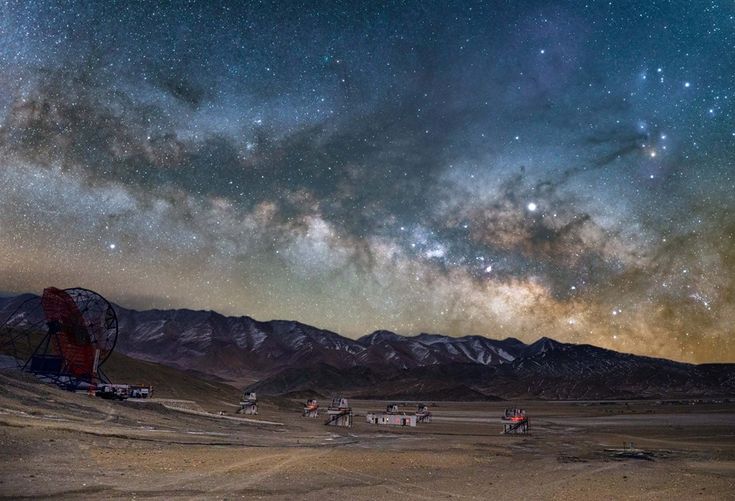India will construct its first Dark Sky Reserve by the end of 2022 in the chilly deserts of Ladakh, according to Dr. Jitendra Singh, Minister of State (Independent charge) for Science and Technology, who made the announcement on Saturday. According to him, this facility will also develop astronomical tourism.

A Dark Sky Reserve is a piece of public or private land that has been thoughtfully created to minimise light pollution and has a distinctive nocturnal environment with starry nights.
These reserves “consist of a core area satisfying minimum criteria for sky quality and natural darkness, and a periphery area that supports dark sky preservation in the core,” according to the International Dark Sky Association (IDSA) website.
According to the report, these reserves were created by a “partnership of various land managers who have recognised the value of the natural nighttime environment through legislation and long-term planning.”
Sites can be proposed by individuals or organisations to the International Dark Sky Association for certification (IDSA).
The certification procedure is comparable to having a location designated as a Biosphere Reserve or a World Heritage Site by UNESCO. According to the IDSA, 195 locations were recognised as International Dark Sky Places worldwide between 2001 and January 2022.
The process of submitting India’s IDSA nomination is currently ongoing.
The first Dark Sky Reserve for the nation is being established under the direction of the Ladakh Union Territory government. The Hanle Dark Sky Reserve (HDSR) will be built within the Changthang Wildlife Sanctuary at a height of 4,500 metres above sea level.
The development of this ground-breaking facility is receiving scientific and technological assistance from the Department of Science and Technology and specialists from the Indian Institute of Astrophysics (IIA), Bengaluru. The Indian Astronomical Observatory (IAO) facility in Hanle, Ladakh, is already under the IIA’s management.
The proposed Dark Sky Reserve’s main goal is to advance astronomy tourism in an environmentally responsible and sustainable way. Here, we’ll employ scientific techniques to protect the night sky from rising light pollution.
There are fewer places that provide a glimpse of pure skies on cloudless nights as metros, cities, and peripheral areas experience light pollution and are constantly lighted up, scientists have noted.
Ladakh has experienced an increase in tourist during favourable months since it became a UT. However, its delicate habitat is exposed to increasing carbon emissions and incoming traffic. The importance of making efforts to expand the usage of green fuels and promote carbon-neutral activities was highlighted in the Ladakh Tourism Vision Document 2022.
The IIA has purchased 10 lightweight, portable telescopes and light-reflecting shields for the trial phase. Locals will be identified and instructed in the usage of these telescopes by outreach specialists and scientists from IIA. This will contain fundamental astronomical observations, constellation recognition, and finding the pole star, among other things. These telescopes will be set up in homestays, a popular type of lodging for tourists in Ladakh.
Outdoor illumination will be restricted within a 22 km radius of the Hanle observatory, which will be the central location of the Dark Sky Reserve. High-beam headlights will not be allowed to be used by any vehicles. Homes in this area will be urged to use darker-colored curtains, put up light-reflecting barriers, and turn off all unnecessary lighting.











